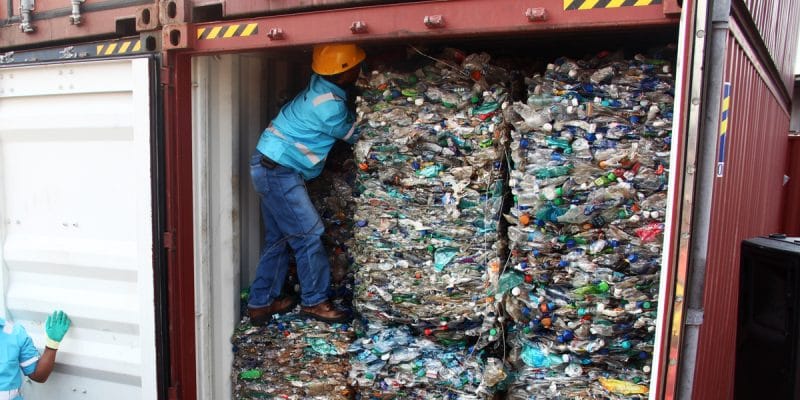Major US petrochemical companies would like to take advantage of the renegotiation of the US-Kenya trade treaty to export plastic waste to Africa. Grouped in the American Chemistry Council, they are calling on the US government to require Kenya to admit US-made chemicals and plastics into its territory. Anything that is contrary to the anti-plastics law in force in this East African country.
Will Kenya’s dreaded anti-plastic policy be sacrificed on the altar of economic agreements with the US? This question has been on the minds of environmentalists since 31 August 2020, after a letter from the American Chemistry Council’s Director of International Trade leaked to the US press. In this correspondence, dated 28 April 2020, the US petrochemical lobby, which includes ExxonMobil, Chevron, Shell, and Dow Chemical, among others, proposes investments in recycling in Kenya, provided the recipient country accepts the plastic waste. “A trade agreement with Kenya should prevent the country from taking measures that would restrict the manufacture or use of plastics, and ensure that Kenya continues to allow trade in plastic waste,” writes Ed Brzytwa, director of international trade at the American Chemistry Council.
For these industrialists, Kenya could in the future act as a hub for exporting their products to Africa. “We anticipate that Kenya could serve as a future hub for supplying U.S.-made chemicals and plastics to other markets in Africa,” says the letter to the U.S. Trade Representative.
Environmental activists’ outrage
The American Chemistry Council’s lobbying for the export of plastic waste to Kenya quickly provoked the wrath of environmentalists. “Any attempt to change plastics laws would be dangerous. Africa already looks like a new waste dump; we are not going to allow that! ”Says Griffins Ochieng, who heads the Centre for Environment, Justice and Development in Kenya. Environmental NGOs see the American Chemistry Council’s ambitions as a threat to Kenya’s anti-plastic control efforts. “The Kenyan government should not reverse the progress made in its non-plastic ambitions by bowing to pressure from fossil fuel giants, as it risks derailing progress across the continent,” says Fredrick Njehu of Greenpeace Africa.
Kenya’s anti-plastic policy is reputed to be one of the strictest in the world. In force since 2017, it makes the manufacture, import and sale of single-use bags punishable by up to four years in prison or fines of up to more than €35,000. Their simple use also gives rise to a fine of between €270 and €1,350, sometimes with a one-year prison sentence.
Suspicious of the American Chemistry Council’s manoeuvres
It is difficult at the moment to know whether the American Chemistry Council’s request has been taken into account by the players in the current renegotiation of the trade agreement between the United States and Kenya, which is expected to end in 2025. Neither government has formally responded to the controversy raised by the council’s letter, but Kenya’s Trade Minister Betty Maina told local media that the talks would continue and that Kenya was guided by national laws. In addition, a summary of the objectives of the negotiations published in May by the United States guaranteed that “Kenya will not waive or derogate from the protections afforded in environmental laws in order to encourage trade or investment”.
Reacting to outrage at its ambitions, the American Chemistry Council said that not a word in its letter jeopardised Kenya’s approach to single-use plastic bags.
Boris Ngounou







